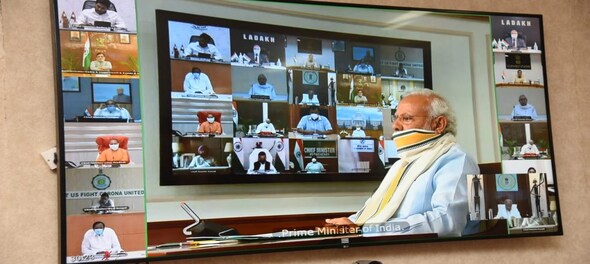
A post COVID19 world will be increasingly insular, risk-averse, and fragmented. Investors are expected to spread risk and relocate manufacturing. A trend already visible — with global businesses looking for new bases in Thailand and Vietnam. On paper, India with strong democratic, business and legal fundamentals ought to be a natural choice. However, there is a sense that this capital may bypass India. To avoid such a situation, we need to visit the key reasons that could deter this new capital.
Investors witness a constant tug of war between supporters and opponents to foreign investment (FDI) in India. This malaise has led to actions such as retrospective taxation, coercive regulation, and reneging on contractual commitments, thereby hurting international and domestic businesses alike.
Sadly, this friction has played out across the board, from within the political class, the bureaucracy, tax authorities, and the judiciary. Investors, however, do not distinguish between the source of their problems, for them, these are decisions of the Indian state and the consequences are for India as a whole.
Probably it’s our East India Company (EIC) hangover that’s responsible for the tug of war. We have failed to distinguish between the unscrupulousness of the EIC and the promise brought by modern FDI. The EIC was an extractive endeavor, relying on tools of annexation, penal taxation, expropriation, and outright loot. Modern FDI, on the other hand, builds projects, generates employment, creates local vendor and distribution networks, contributes to taxes, before extracting profits.
Maybe there is a good case to resist FDI, in which case we should not spend time trying to attract FDI opportunities in this present crisis. If, however, we like FDI, then the uncertain environment needs to end, for it will only deter the entry of patient FDI (such as strategic investment, long-term finance, or pension funds).
Providing a clear way forward
Strategically, there are two basic options to bring FDI. One is to not bother about the colour of the cat, as long as it catches the mice and consequently opens all sectors to FDI. Less aggressive is the option of identifying sectors reserved for Indians and open the rest of the market, without the spokes of ambiguity. What, does not work is the Indian fondness for uncertainty and revisiting decisions.
India’s view on what is permitted (with or without government approval) must be clearly communicated as a matter of public record and not left to those in the know. If national security is a concern, the solution is not in delaying projects by imposing pre-investment approvals. As with the CFIUS framework in the US, the approach could be to set the expectation that India would legitimately unwind any investment that is found to compromise national security.
The Indian state needs to take a leaf out of the Chinese playbook and demonstrate its desire to commit to FDI on a long-term basis. Dispute resolution should not the default method to hold the Indian state accountable.
Undoing the past
Boardroom discussions on investing in India involves 3 major events in our economic history. Setbacks in the power sector — the abandonment of Enron and the cancellation of the coal licences; telecom sector — uncertainty and licence cancellations, which hurt wrongdoers and investors alike; and taxation — including retrospective taxation. Any shift in investor perception needs us to actively undo the impact of these events, and not be limited to blaming past establishments.
For the power sector, reneging on payments must stop, free trade must be a fact, and revival of power projects a reality. To undo India’s reputation as an “unfair tax jurisdiction”, withdraw all retrospective tax. Explore future credits as a means to defer the financial burden.
Finally, make the telecom sector competitive again, stop viewing it as a source for windfall profit and attract new players. Treat the sector as a partner for the modern economy and a tool for improving governance, information dissemination and empowerment. Offer creative solutions to settle outstanding AGR dues as a start point to the new approach.
The way forward
In addition to these sentiment shifters, India needs to provide real ease of doing business. The stepping-stones for this could be by freeing agriculture from the mandi system and the handicap mindset. Retail needs to be liberalized, focusing on agri-produce and domestic manufacturing. Our financial stimulus needs to create infrastructure and new businesses instead of throwing good money at bad assets.
The special zones for foreign investment under discussion should focus on rebooting governance rather than tinker with tax and utility concessions. India must invest in better governance in these areas — by providing specially purposed administrative, policing and judicial systems.
-Anand Prasad is a leading corporate lawyer with more than 25 years of experience. Arjun Sinha advises on commercial and regulatory issues. The views expressed are personal
First Published: May 18, 2020 8:02 AM IST
Check out our in-depth Market Coverage, Business News & get real-time Stock Market Updates on CNBC-TV18. Also, Watch our channels CNBC-TV18, CNBC Awaaz and CNBC Bajar Live on-the-go!


10% discount on fare on Mumbai Metro lines 2 and 7A on May 20
May 3, 2024 2:40 PM
'Rahul Gandhi deserted Amethi due to fear of Smriti Irani': How BJP plans to puncture Congress' UP plan
May 3, 2024 1:12 PM

